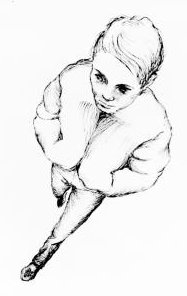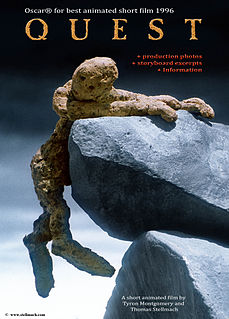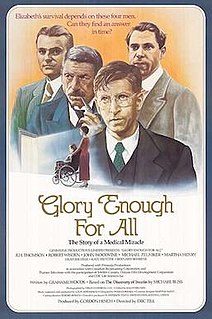Related Research Articles

John James Rickard Macleod was a British biochemist and physiologist. He devoted his career to diverse topics in physiology and biochemistry, but was chiefly interested in carbohydrate metabolism. He is noted for his role in the discovery and isolation of insulin during his tenure as a lecturer at the University of Toronto, for which he and Frederick Banting received the 1923 Nobel prize in Physiology or Medicine. Awarding the prize to Macleod was controversial at the time, because according to Banting's version of events, Macleod's role in the discovery was negligible. It was not until decades after the events that an independent review acknowledged a far greater role than was attributed to him at first.

Sir Frederick Grant Banting was a Canadian medical scientist, physician, painter, and Nobel laureate noted as the co-discoverer of insulin and its therapeutic potential.

Charles Herbert Best was an American-Canadian medical scientist and one of the co-discoverers of insulin.

The National Film Board of Canada is Canada's public film and digital media producer and distributor. An agency of the Government of Canada, the NFB produces and distributes documentary films, animation, web documentaries, and alternative dramas. In total, the NFB has produced over 13,000 productions since its inception, which have won over 5,000 awards. The NFB reports to the Parliament of Canada through the Minister of Canadian Heritage. It has bilingual production programs and branches in English and French, including multicultural-related documentaries.

William Norman McLaren, was a Scottish Canadian animator, director and producer known for his work for the National Film Board of Canada (NFB). He was a pioneer in a number of areas of animation and filmmaking, including hand-drawn animation, drawn-on-film animation, visual music, abstract film, pixilation and graphical sound.

Georges-Henri Denys Arcand is a French Canadian film director, screenwriter and producer. His film The Barbarian Invasions won the Academy Award for Best Foreign Film in 2004. His films have also been nominated three further times, including two nominations in the same category for The Decline of the American Empire in 1986 and Jesus of Montreal in 1989, becoming the only French-Canadian director in history whose films have received this number of nominations and, subsequently, to have a film win the award. Also for The Barbarian Invasions, he received an Academy Award nomination for Best Original Screenplay, losing to Sofia Coppola for Lost in Translation.
Universe is a black-and-white, short, animated documentary made in 1960 by the National Film Board of Canada. It "creates on the screen a vast, awe-inspiring picture of the universe as it would appear to a voyager through space. Realistic animation takes you into far regions of space, beyond the reach of the strongest telescope, past Moon, Sun, and Milky Way into galaxies yet unfathomed."
The Canadian Film Awards were the leading Canadian cinema awards from 1949 until 1978. These honours were conducted annually, except in 1974 when a number of Quebec directors withdrew their participation and prompted a cancellation. In the 1970s they were also sometimes known as the Etrog Awards for sculptor Sorel Etrog, who designed the statuette.

Walking is a 1968 Canadian animated short film directed and produced by Ryan Larkin for the National Film Board of Canada, composed of animated vignettes of how different people walk.

Quest is a 1996 German animated short film directed by Tyron Montgomery, written (story) and produced by Thomas Stellmach at the University of Kassel - Art College. After four years of production it won several awards including the Academy Award for Best Animated Short Film.
The Street is a 1976 animated short by Caroline Leaf, based on a short story of the same name by Mordecai Richler, and produced by the National Film Board of Canada.

Blake is a 1969 Canadian short documentary film produced by the National Film Board of Canada (NFB). The film was directed by Bill Mason about his friend and fellow filmmaker Blake James, who pilots his own aircraft and lives by a unique code. Blake is Mason's cinematic testimonial to his friend and his "hobo of the skies" lifestyle.

Glory Enough for All is a 1988 Canadian television movie directed by Eric Till and written by Grahame Woods, depicting the discovery and isolation of insulin by Frederick Banting and Charles Herbert Best. It was the winner of nine 1989 Gemini Awards. The film stars R. H. Thomson as Banting, and Robert Wisden as Best. It is based on the books The Discovery of Insulin and Banting: A Biography by historian Michael Bliss.

Lipsett Diaries is a 2010 short animated documentary about the life and art of collage filmmaker Arthur Lipsett, animated and directed by Theodore Ushev and written by Chris Robinson. The 14-minute film was produced by the National Film Board of Canada in Montreal, where Lipsett had worked from 1958 to 1972, before committing suicide in 1986. The film is narrated by Xavier Dolan.
Evolution is a 1971 Canadian animated short by Michael Mills, offering a humorous portrayal of evolution. Evolution was nominated for the Academy Award for Best Animated Short Film at the 44th Academy Awards, and received nearly 40 international film awards. A film without words, Evolution was animated, directed, written and produced by Mills during his tenure at the National Film Board of Canada, which began in 1966 and lasted until he formed his own animation company, Michael Mills Productions, in 1974.
Dana Inkster is an Alberta-based Canadian media artist and filmmaker.
The Banting Research Foundation is a registered charity whose object is to fund health and biomedical research in Canada. It was established to support the ongoing research of Frederick Banting and his associates.
Wild Africa is a Canadian documentary film, directed by John Livingston and William Bantings and released in 1970. A nature documentary, the film depicts the wildlife of Africa and efforts to protect it through the creation and maintenance of game reserves.
Money Minters is a Canadian short documentary film, directed by Ted De Wit and released in 1958. Sponsored by INCO and the Royal Canadian Mint, the film documents the process of making a coin from the initial mining of metal ore at Sudbury to the coin's final production at the Royal Canadian Mint.
Do Not Fold, Staple, Spindle or Mutilate is a Canadian short drama film, directed by John Howe and released in 1967. Written by American playwright and screenwriter Millard Lampell, the film stars Ed Begley as an established trade union leader fighting an attempt by the union membership to push him out in favour of a new, younger leader with a more modern approach.
References
- ↑ Gary Evans, In the National Interest: A Chronicle of the National Film Board of Canada from 1949 to 1989. University of Toronto Press, 1991. ISBN 9780802068330. p. 55.
- ↑ Maria Topalovich, And the Genie Goes To...: Celebrating 50 Years of the Canadian Film Awards. Stoddart Publishing, 2000. ISBN 0-7737-3238-1. pp. 45-47.